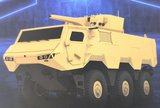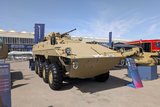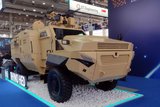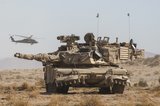TARDEC to demo ZH2 fuel cell vehicle
The US Army Tank Automotive Research, Development and Engineering Center (TARDEC) is set to hold a demonstration of the General Motors ZH2 Fuel Cell Electric Vehicle (FCEV) at Schofield Barracks later this month.
The demonstration will allow the US Army to evaluate capabilities of the ZH2 vehicle, a modified Chevy Colorado fitted with a hydrogen fuel cell and electric drive.
According to TARDEC, the ZH2 vehicle produces high torque and is equipped with 37in tyres that increase its off-road manoeuvrability to negotiate rough and steep terrain. When the vehicle is immobile, it can generate 25kW of continuous power or 50kW of peak power.
There are 120 and 240 volt outlets located in the trunk, allowing for silent power off-loading for base operations. The vehicle’s hydrogen fuel cell can produce two gallons per hour of potable water.
This is the final soldier user evaluation event to demonstrate technology on the ZH2. The soldiers at the brigade level will put the vehicle to rigorous testing within a larger operational training exercise involving a recon mission of enemy forces in jungle terrain.
The ZH2’s drive system does not produce smoke, noise, odour or thermal signature, allowing soldiers to conduct silent watch on the battlefield.
More from Land Warfare
-
![World Defense Show 2026: MARSS displays new Nation Shield air defence C2 system]()
World Defense Show 2026: MARSS displays new Nation Shield air defence C2 system
Nation Shield is the latest iteration of the MARSS C2 system and is designed to provide C2 further forward along with more capable air defence.
-
![World Defense Show 2026: ST Engineering’s Rhino 4x4 set to enter service]()
World Defense Show 2026: ST Engineering’s Rhino 4x4 set to enter service
The Rhino 4x4 protected vehicle is being manufactured for an undisclosed country, likely to be Singapore, while its Agil counter-UAS C2 system is in low-rate production.
-
![World Defense Show 2026: Saudi Arabia’s record defence spend highlights uncertain times]()
World Defense Show 2026: Saudi Arabia’s record defence spend highlights uncertain times
Saudi Arabia’s investment in its land forces, notably in the area of air defence as recently as 30 January, is a sign of the challenges the Gulf State faces, particularly the threat from Houthi rebels in Yemen.





















